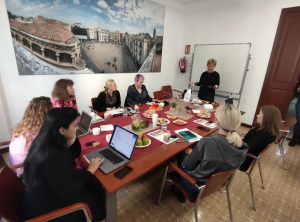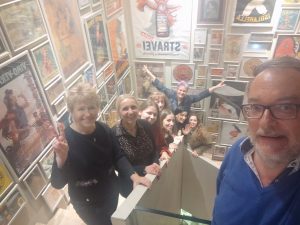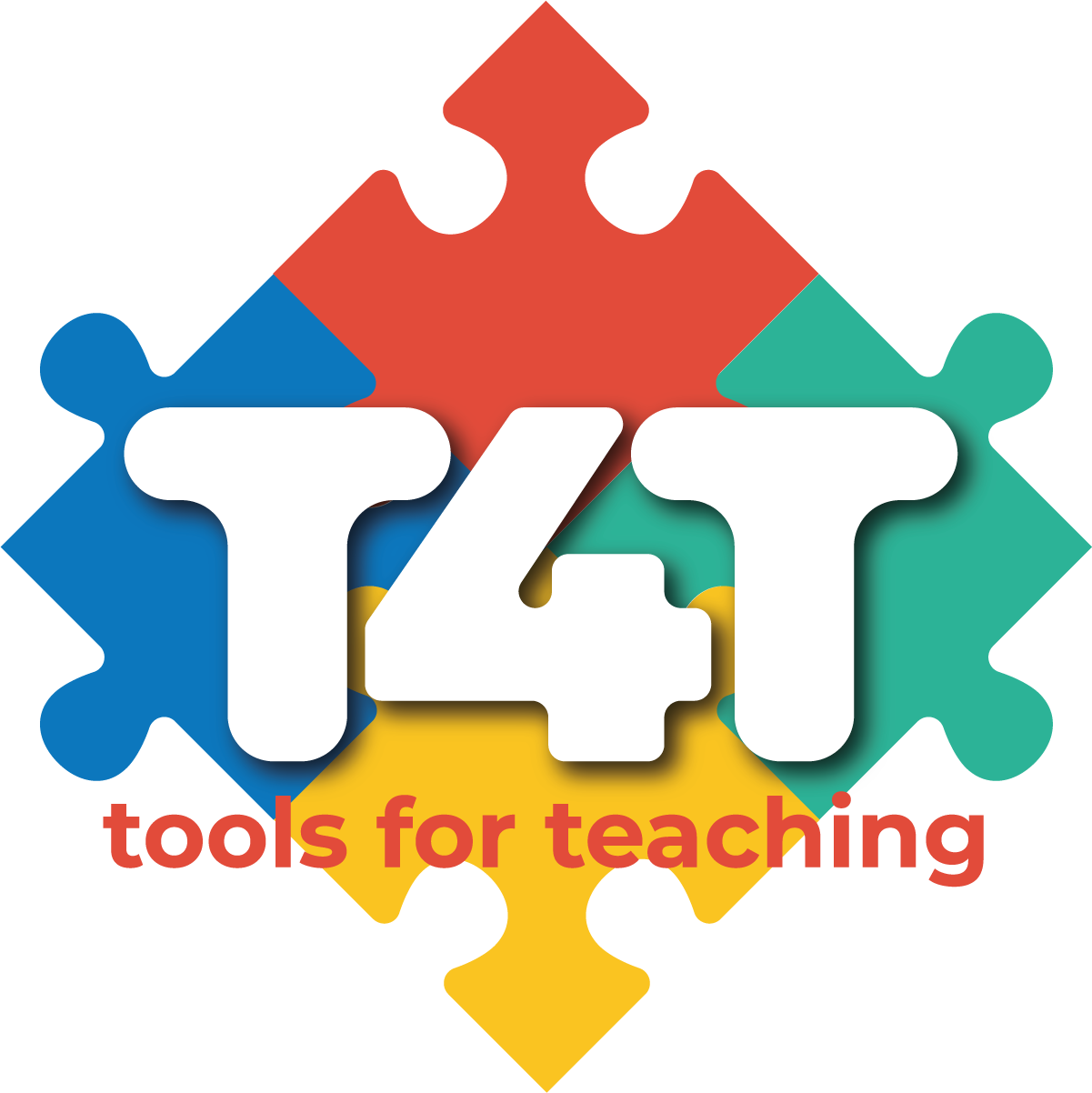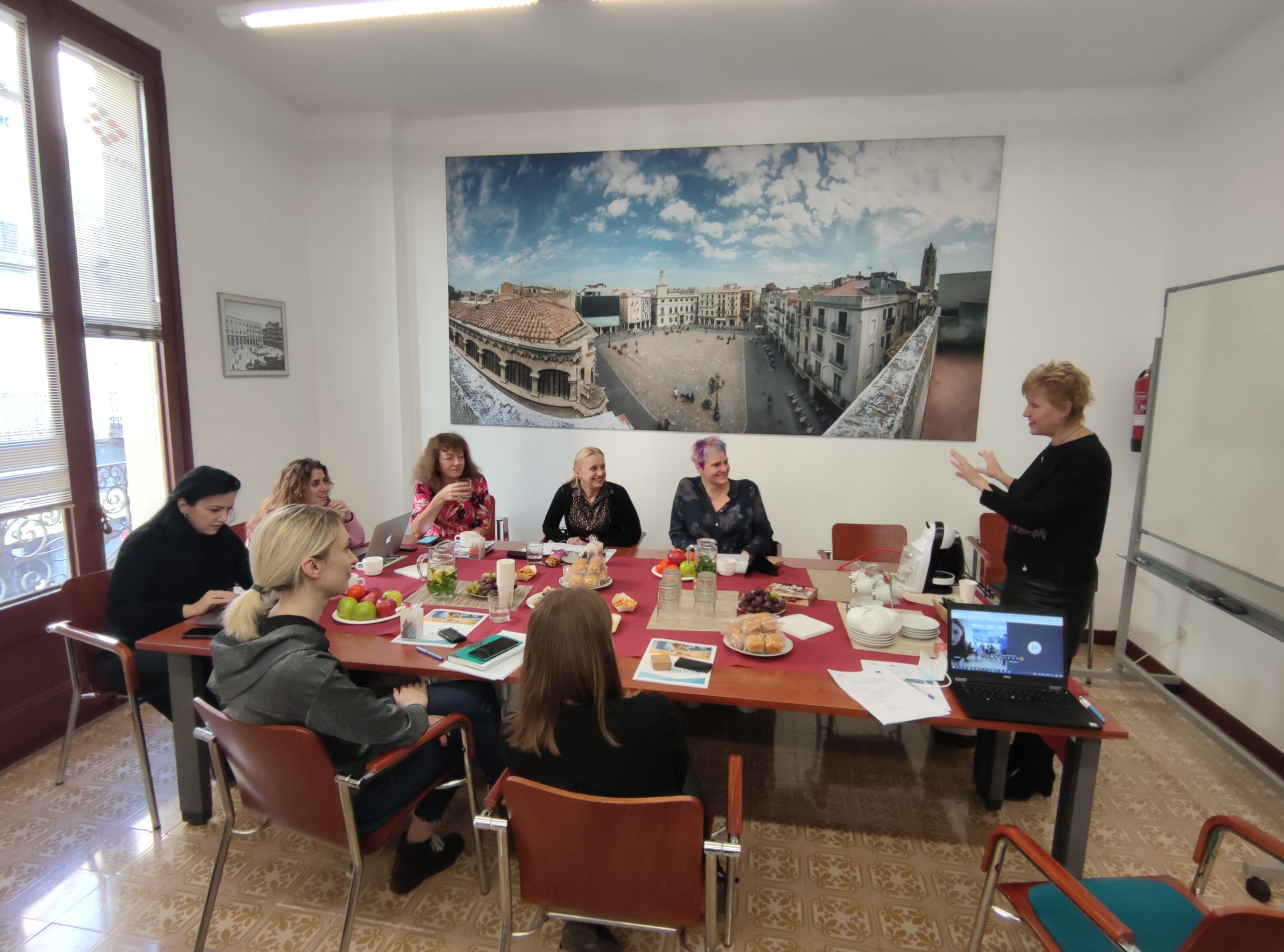Kick-off Transnational Partner Meeting in Reus, Spain
On 10 and 11 February 2022, all partners of the Erasmus+ T4T project: Tools4Teaching in Digital Education Settings came together for the first time for a kick-off meeting in Reus, Spain. The event lasted 2 days and took place at the premises of DomSpain, the coordinator of the project.
VI One (Netherlands), MyArtist (Greece), EDUPRO (Lithuania) and ARTIED (Bulgaria) participated at the face-to-face meeting and SAN (Poland) joined it online.
Hybrid meetings can be challenging and require the participants to multi-task attending such a meeting: ensuring the person on the computer can listen and contribute, talking on top of each other or at the same time, moderating the discussion between face-to-face and virtual participants, etc. Fortunately, all partners of the kick off meeting were able to overcome these problems and everything went smoothly for the duration of the meeting on both days.

The first item on the agenda was a session on project management and financial aspects. DomSpain was responsible for this as the coordinator of the project. The partners also discussed the first steps in project implementation they had taken before the kick-off meeting: first drafts of the documents/templates prepared for Outcome 1 and 2, dissemination materials, including logo, and a draft of the quality assurance plan.
DomSpain presented the main aspects of the evaluation of the project proposal and the partners discussed the strengths, weaknesses and points for improvement in the categories of quality of the project design, quality of the partnership, cooperation arrangements and impact
To strengthen the networking of the partners and to promote the project among the project stakeholders, each partner created an account on the platform DISCUSS and invited adult learners and educators to join the project group. The platform shares best practises, provides feedback from community members that can be useful for piloting, and can be used to exchange opinions, ideas, etc. with the project target groups and stakeholders.
DomSpain then organised an ‘open office’ activity where all participants were divided into three groups to discuss project management, quality assessment and dissemination. Some of the key points in the workshop discussions were:
- meeting deadlines;
- active participation, communication and involvement in meetings;
- willingness to talk about challenges/difficulties and ask for help;
- all documents requested by the coordinators must be submitted in time for the coordinator to prepare interim and final reports;
- a lead partner for each outcome/activity coordinates the work of all partners, offers support, tracks progress and deadlines, sends emails/reminders and is available in case of questions or doubts;
- involve as many target groups and associated partners as possible – in the evaluation of results;
- check which risk factors are more related to impact/quality of results/participation of target groups;
- and be aware of the needs of the target groups (educators) changing, so it’s important to be sure that the results are relevant to them.

The fulfilment of all these objectives plays an important role in the success of the project so far.
On day 1 and 2, the first work package was presented and discussed. Artied and VI One were the leaders of these activities, so they shared their presentations accordingly.
- VI One was responsible for developing a template for the guidelines aimed at adult educators to create effective group dynamics in an online learning environment.
- Artied was responsible for the Resource Library. The Resource Library consists of a listing of resources for sustaining online group interaction and identifies available European practices. It complements the guidelines and serves as a reference for adult educators.
Both are already available on the project website.
Last but not least, MyArtist presented the dissemination plan. Dissemination plays a very important role in the success of a project because it is the way to reach the stakeholders. The partners talked about the website, how it should look like and what it should show. It was also agreed to publish 4 newsletters during the project.
All in all, it was a fruitful meeting and all partners agreed that it was a crucial step to start the project on a good foot.

